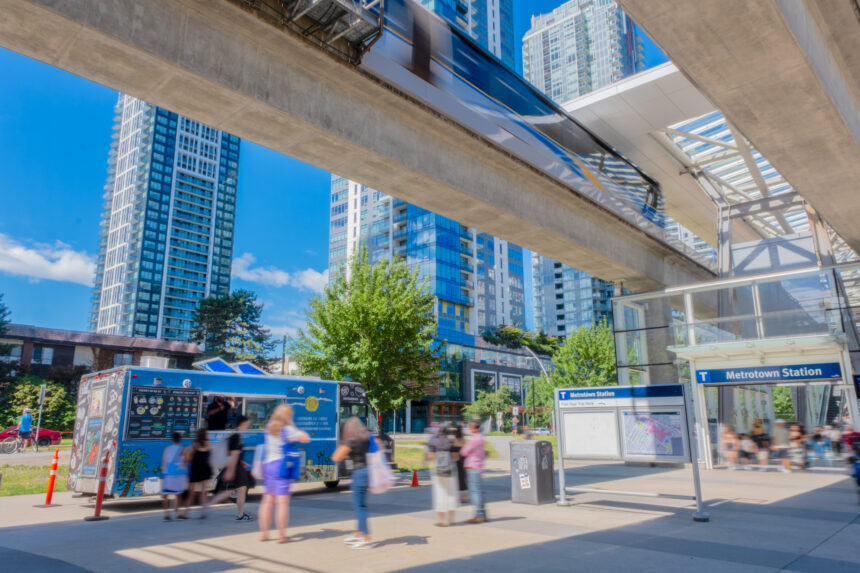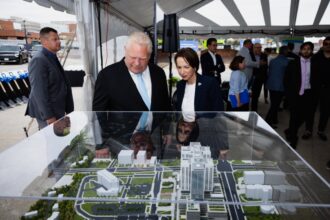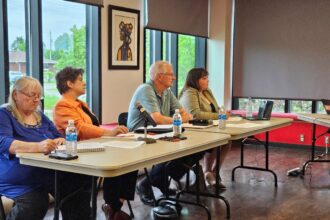In a move set to transform the daily commute for thousands of Metro Vancouver residents, TransLink has officially launched its much-anticipated food truck program at select SkyTrain stations. The initiative, which began rolling out this week, aims to enhance the transit experience by offering convenient dining options directly at transportation hubs.
The program’s inaugural location at Production Way-University Station has already seen eager commuters lining up to sample offerings from “Taco Nori,” a local favorite specializing in Japanese-Mexican fusion cuisine. The colorful truck, stationed prominently near the station entrance, represents the first phase of what TransLink officials describe as a “transit experience enhancement strategy.”
“We’re reimagining transit spaces as community hubs rather than just pass-through locations,” explains Maria Chen, TransLink’s Customer Experience Director. “Food brings people together, and this program creates small moments of delight during what might otherwise be routine commutes.”
TransLink has carefully selected participating vendors through a competitive application process that emphasized quality, diversity of offerings, and operational reliability. Officials confirm that all trucks must maintain proper health certifications and commit to sustainable practices, including minimal packaging waste.
The program will expand in coming weeks to include Commercial-Broadway, New Westminster, and Lougheed Town Centre stations, with each location featuring a rotating schedule of different food trucks. A CO24 News investigation reveals that vendors will operate primarily during peak commuting hours, with some locations offering extended service during weekends and special events.
For local entrepreneurs like Jamal Khouri, owner of “Beirut Express” food truck scheduled to begin service at Commercial-Broadway next month, the program represents a significant business opportunity. “Transit stations give us access to thousands of potential customers who might not otherwise encounter our business,” Khouri told CO24 Business. “It’s a win-win—commuters get convenient food options, and small businesses gain visibility.”
The initiative follows similar successful programs in cities like Portland and Toronto, where transit-oriented food services have become integral parts of the urban fabric. Economic analysis suggests such programs can increase transit ridership by making stations more appealing destinations rather than mere transfer points.
Public reception has been overwhelmingly positive, with social media buzzing with reviews and photos from early patrons. “Having quality food options right at the station saves me precious time during my commute,” notes Emily Wong, a regular Production Way-University commuter. “I can grab dinner on my way home instead of making an extra stop.”
TransLink officials indicate the program could eventually expand to include retail vendors and seasonal market concepts if the food truck initiative proves successful. The transit authority plans to evaluate the program’s impact on rider satisfaction, station dwell times, and overall transit experience before making decisions about expansion.
As Metro Vancouver’s transit network continues to evolve, innovations like the food truck program reflect broader shifts in urban planning that prioritize human-centered design and community building. With climate concerns driving increased transit adoption, amenities that enhance the commuter experience may play a crucial role in sustainable transportation’s future.
As this program takes its first steps, the question remains: could these small additions to our transit infrastructure fundamentally change how residents interact with public transportation, transforming it from mere utility to community experience?

























